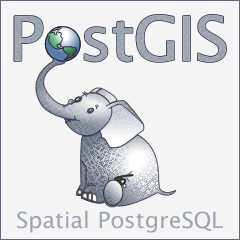R Programming
T Test in R: One Sample and Paired (with Example)
What is Statistical Inference? Stastitical inference is the art of generating conclusions about...
PostgreSQL is an enterprise-class open source database management system. It supports both SQL and JSON for relational and non-relational queries for extensibility and SQL compliance. PostgreSQL supports advanced data types and performance optimization features, which are only available in expensive commercial databases, like Oracle and SQL Server. It is also known as Postgres.
It is backed by an experienced community of developers who have made tremendous contributions to make it a highly reliable DBMS system.
In this tutorial, you will learn
PostgreSQL (initially called Postgres) was created by a computer science professor Michael Stonebraker and his team. Today it has become one of the popular open-source databases.
Let's see some important Milestone from PostgreSQL History:
Below are the key PostgreSQL features:
Here, are some most prominent PostgreSQL features:
| MYSQL | PostgreSQL |
| The MySQL project has made its source code available under the terms of the GNU License, and other proprietary agreements. | PostgreSQL is released under PostgreSQL License. |
| It's now owned by Oracle Corporation and offers several paid editions. | It's free and open-source software. That means you will never need to pay anything for this service. |
| MySQL is ACID compliant only when using with NDB and InnoDB Cluster Storage engines | PostgreSQL is completely ACID compliant. |
| MySQL performs well in OLAP and OLTP systems where only read speed is important. | PostgreSQL performance works best in systems which demand the execution of complex queries. |
| MySQL is reliable and works well with BI (Business Intelligence) applications, which are difficult to read | PostgreSQL works well with BI applications. However, it is more suited for Data Warehousing and data analysis applications which need fast read-write speeds. |
Next, we will learn about PostgreSQL advantages and disadvantages.
Below are the main advantages of PostgreSQL:
Below are the disadvantages of PostgreSQL:
PostgreSQL is an ideal DBMS system for the financial industry. Moreover, It is fully ACID compliant which makes it an ideal choice for OLTP (Online Transaction Processing). It is also capable of performing database analytics. It can be integrated with mathematical software like Matlab and R.

PostGIS
PostgreSQL offers powerful GIS which is called "PostGIS". This extension provides hundreds of functions to process geometric data in different formats. PostGIS is highly standard compliant. Moreover, by using both QGIS or GeoServer, the Open Source community provides the easiest method to handle Geodata.
Nowadays, industrial manufacturers also using PostgreSQL to speed up their overall business process. It also helps them to optimize supply chain performance by using this open-source DBMS as storage backend. It allows companies to reduce the operation cost of their business.
If your website requires to deal with hundreds or even thousands request per second at that time, scalability is a surely big issue. Here, Postgre proves the best solution.
PostgreSQL works fine with all modern web frameworks like Django, Node.js,
Hibernate, PHP, etc. It also offers replication capabilities which allow to scale out as many database servers as you want.
You need to generate terabytes of data if you are working on research and scientific project. Therefore, it is important to handle in the most efficient way as possible. For that, PostgreSQL offers wonderful analytical capabilities and powerful SQL engine. This helps you to manage a large amount of data with ease.
What is Statistical Inference? Stastitical inference is the art of generating conclusions about...
What is System Software? System Software is a set of programs that control and manage the...
In this tutorial, you will learn- What is a Process? Running a Foreground Process Running a...
What is UNIX? The UNIX OS was born in the late 1960s. AT&T Bell Labs released an operating system called...
$20.20 $9.99 for today 4.6 (125 ratings) Key Highlights of R Programming Tutorial PDF 383+ pages...
$20.20 $9.99 for today 4.6 (118 ratings) Key Highlights of ASP.NET Tutorial PDF 157+ pages eBook...